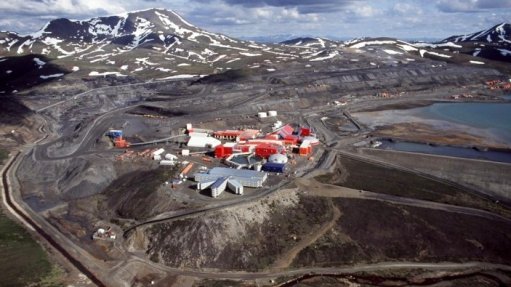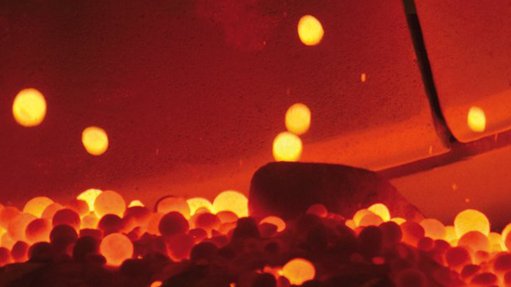Firms can boost sustainability through maintenance
Maintaining equipment and machinery can greatly improve sustainability efforts, notes hardfacing applications expert Welding Alloys group product engineer Pieter du Plessis.
He cites, for example, the fact that scheduling preventative maintenance saves 20% of raw material usage, as well as results in a 30% decrease in greenhouse-gas emissions. Therefore, companies looking to achieve a more sustainable outlook in their operations could begin by looking at the type of value that preventative maintenance could derive for their business.
Du Plessis notes the importance of minimising equipment downtime to ensure energy is used as efficiently as possible. “Whether it is machining equipment, cement plant components or components in the recycling industry, most industries are generally exposed to challenging wear environments.”
He adds that many parts and components experience continuous friction, heat and stress during operation and will gradually wear out over time. As part of an effective preventative maintenance strategy, these require inspection, maintenance and repair to delay or avoid costly replacement, and to keep the machinery running efficiently.
One of the most beneficial advantages of keeping machinery in good order is that it can improve overall energy efficiency, says Du Plessis.
He explains: “Performing constant maintenance checks on your tools and equipment will allow your assets to always operate at the height of their efficiency. “Well-maintained machinery tends to consume less energy as everything is ticking as it should. In turn, this will significantly lower your carbon emissions and leave you with a more affordable bill at the end of the month.”
He adds that, when comparing the energy requirements of replacement against the energy requirements for the maintenance and repair of components, it is always more beneficial to adhere to the principles of preventative maintenance, if one wants to improve sustainability and reach emissions reduction goals.
“It’s also worth noting that preventative maintenance to reduce downtime can actively help with resource conservation. Any inefficiencies and hiccups in your processes can waste lots of precious energy, as your assets will need to work twice as hard to overcome the fault and keep operating as usual.”
Consequently, regular maintenance tasks can “nip any potential problems in the bud and promote a more sustainable use of your resources”. Looking after tools also increases their longevity, Du Plessis comments, adding that “from regular inspections to cleaning and timely repairs, preventative maintenance measures allow [companies] to identify issues before they escalate into bigger, more troublesome problems”.
This means that companies can monitor their equipment’s health and tackle any hazards on the spot, which will then favour optimal longevity and reduce the need for frequent, pricey purchases. “In this respect, extending the lifespan of your machinery will cut your [waste] levels, too. For example, regularly replacing worn-out welding torches with brand-new assets can generate significant waste, putting a dent in your sustainability efforts,” Du Plessis advises.
Educating people about the impact of downtime on the environment might encourage them to review the performance of their tools, Du Plessis suggests, adding that fostering a culture of sustainability within a business is a crucial step to making preventative maintenance a priority for everyone. “This will empower workers to contribute to the company’s eco-friendly goals, as they will feel the responsibility to promote sustainable behaviours in their operations.”
He adds that employees in senior positions should ensure that co-workers and subordinates receive training sessions on maintenance and environmental best practices. “With the right resources and knowledge, they are more likely to embrace an eco-conscious mindset and play an active role in preventing energy-consuming downtime.”
Reduced Emissions, Water Consumption
Du Plessis notes that preventative maintenance programmes can minimise emissions and aid in carbon footprint management and reduction efforts.
“Underperforming machinery tends to emit higher levels of pollutants . . . this is particularly relevant in the welding industry, as ill-kept assets can generate fumes and particulate matter.” Conversely, well-maintained equipment is more likely to operate in a clean, effective fashion.
By monitoring machinery’s health and performance, companies can avoid leaks, spills, and other malfunctions that could harm the environment.
“What’s more, preventative maintenance can help minimise water consumption too. Every day, just under three-billion litres of water, equivalent to 1 180 Olympic-size swimming pools, are lost [owing] to leaks. However, by monitoring your tools on a regular basis, you can identify and rectify any problems causing water leaks and ensure they’re adequately conserved to drive your operations forward.” Du Plessis concludes that “by checking the health of your assets consistently, rather than when the damage is done, you can minimise downtime, save money on expensive repairs, and make a difference in the [health and quality] of your surroundings”.
Article Enquiry
Email Article
Save Article
Feedback
To advertise email advertising@creamermedia.co.za or click here
Announcements
What's On
Subscribe to improve your user experience...
Option 1 (equivalent of R125 a month):
Receive a weekly copy of Creamer Media's Engineering News & Mining Weekly magazine
(print copy for those in South Africa and e-magazine for those outside of South Africa)
Receive daily email newsletters
Access to full search results
Access archive of magazine back copies
Access to Projects in Progress
Access to ONE Research Report of your choice in PDF format
Option 2 (equivalent of R375 a month):
All benefits from Option 1
PLUS
Access to Creamer Media's Research Channel Africa for ALL Research Reports, in PDF format, on various industrial and mining sectors
including Electricity; Water; Energy Transition; Hydrogen; Roads, Rail and Ports; Coal; Gold; Platinum; Battery Metals; etc.
Already a subscriber?
Forgotten your password?
Receive weekly copy of Creamer Media's Engineering News & Mining Weekly magazine (print copy for those in South Africa and e-magazine for those outside of South Africa)
➕
Recieve daily email newsletters
➕
Access to full search results
➕
Access archive of magazine back copies
➕
Access to Projects in Progress
➕
Access to ONE Research Report of your choice in PDF format
RESEARCH CHANNEL AFRICA
R4500 (equivalent of R375 a month)
SUBSCRIBEAll benefits from Option 1
➕
Access to Creamer Media's Research Channel Africa for ALL Research Reports on various industrial and mining sectors, in PDF format, including on:
Electricity
➕
Water
➕
Energy Transition
➕
Hydrogen
➕
Roads, Rail and Ports
➕
Coal
➕
Gold
➕
Platinum
➕
Battery Metals
➕
etc.
Receive all benefits from Option 1 or Option 2 delivered to numerous people at your company
➕
Multiple User names and Passwords for simultaneous log-ins
➕
Intranet integration access to all in your organisation


















